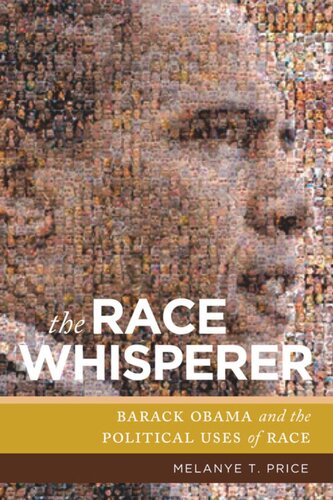

Most ebook files are in PDF format, so you can easily read them using various software such as Foxit Reader or directly on the Google Chrome browser.
Some ebook files are released by publishers in other formats such as .awz, .mobi, .epub, .fb2, etc. You may need to install specific software to read these formats on mobile/PC, such as Calibre.
Please read the tutorial at this link: https://ebookbell.com/faq
We offer FREE conversion to the popular formats you request; however, this may take some time. Therefore, right after payment, please email us, and we will try to provide the service as quickly as possible.
For some exceptional file formats or broken links (if any), please refrain from opening any disputes. Instead, email us first, and we will try to assist within a maximum of 6 hours.
EbookBell Team

4.1
100 reviewsNearly a week after George Zimmerman was found not guilty of killing Trayvon Martin, President Obama walked into the press briefing room and shocked observers by saying that “Trayvon could have been me.” He talked personally and poignantly about his experiences and pointed to intra-racial violence as equally serious and precarious for black boys. He offered no sweeping policy changes or legislative agendas; he saw them as futile. Instead, he suggested that prejudice would be eliminated through collective efforts to help black males and for everyone to reflect on their own prejudices.
Obama’s presidency provides a unique opportunity to engage in a discussion about race and politics. In The Race Whisperer, Melanye Price analyzes the manner in which Barack Obama uses race strategically to engage with and win the loyalty of potential supporters. This book uses examples from Obama’s campaigns and presidency to demonstrate his ability to authentically tap into notions of blackness and whiteness to appeal to particular constituencies. By tailoring his unorthodox personal narrative to emphasize those parts of it that most resonate with a specific racial group, he targets his message effectively to that audience, shoring up electoral and governing support. The book also considers the impact of Obama’s use of race on the ongoing quest for black political empowerment. Unfortunately, racial advocacy for African Americans has been made more difficult because of the intense scrutiny of Obama’s relationship with the black community, Obama’s unwillingness to be more publicly vocal in light of that scrutiny, and the black community’s reluctance to use traditional protest and advocacy methods on a black president. Ultimately, though, The Race Whisperer argues for a more complex reading of race in the age of Obama, breaking new ground in the study of race and politics, public opinion, and political campaigns.